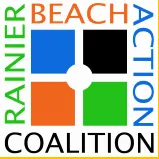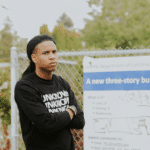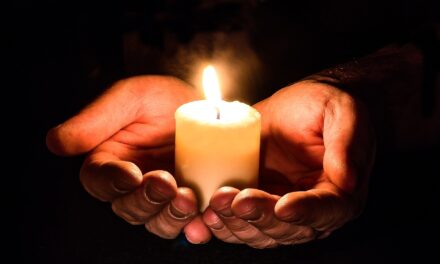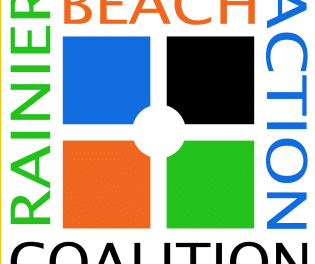Growing up in the South End, I had much exposure and opportunities to engage people of many different cultures and walks of life. Living around this diversity and having this lens since my childhood, I have always been interested in furthering my knowledge of other cultures. As a Black/African-American in the United States, we take much pride in our celebration of culture. My parents made sure that I knew my Black roots and was aware of the beautiful heritage it carries, because what is taught in history classes across the country is but a filtered and biased image that doesn’t empower our people. I noticed this injustice early on in my education, recognizing that my classes (especially history and social studies) were really only edifying if you were White: the Eurocentric emphasis implied that everyone else’s history was subordinate. This is the reality our students still wrestle with today.
As a result, I found myself exploring the truth outside the classroom and learning about the powerful histories that are embedded in the many cultures represented in the Rainier Valley. This cultural open-mindedness which I was raised in maintained me throughout my youth, through my college years of which I am humbled to have had the opportunity to attend. I went to Seattle Pacific University, which like the majority of all universities in the US, is a predominately White institution. My junior year of college, in 2013, I had the privilege (after much saving, praying, and applying to scholarships) to participate in a 2 ½ month study abroad program in Guatemala. It’s safe to say my past had prepared me for this unpredictably profound experience that would elevate my human consciousness as well as motivate me in a radical pursuit of justice.
My first trip to Guatemala was my first extended period of time away from home and the comfort of my South End community. Being the only Black person in the group and traveling to a country where I would stand out even more, I knew this would be a trying experience. However, instead of complaining, I seized the opportunity to grow-and what an opportunity it was! I found myself being accepted by Guatemala in ways I never expected. I lived with local families that embraced me as a son, brother, and friend. I enjoyed the delicious cuisine and participated in traditional celebrations and practices (such as flying kites for Diá de los Santos and singing Posadas de Navidad); in addition to an in-depth study of the present state of the country, the culture and history of the Maya, and the painful past that Guatemala is still recovering from, my perspective of the world (and the US’s influence on it) continued to transform.
It was an unforgettable and priceless experience which I appreciate beyond description. Consequently, the relationships I made in those months stuck with me, and my entire senior year I remember saying “when I graduate, I’m going back.” Of course, the greatest concern of soon-to-be graduates these days is job security, so some people discouraged my pursuit to return to Guatemala. I actually turned down multiple offers for well-paying jobs too. But I didn’t care. I knew I had a unique ability to serve the people that gave so much to me without a question of reciprocity, and I was committed to giving back my best. Again, after much saving, praying, and assistance from organizations like the Krista Foundation, I had enough funds to make it happen. But this time, it would be without a group. This time it was just me.
As I write this, I am actually towards the end of this 2nd voyage to Guatemala. It has been three months and an amazing experience, so different than my first, yet equally impactful. In my time here I’ve been living with a local family while working (volunteering) at two places: an elementary school for at-risk youth called La Guarderia and a hospital for people with special needs, Obras Sociales de San Hermano Pedro. I have also been writing poetry and performing some independent research on the topics of justice and social movements/revolution.
I haven’t made a dime in over three months! But who cares!? One of the main reasons I felt called to come back was to lend my hand at the aforementioned hospital, Hermano Pedro. As I said, it’s a hospital institution for people with special needs, where 90% of the 200+ patients are confined to wheelchairs because their disabilities limit their physical capacity. I remember approaching with some trepidation, a flicker of fear, because I hadn’t had experience working with people with special needs. By the end of the first day I saw Jesus/God/Allah/the Light of the Infinite One within the spirits of these beautiful people who are stigmatized and outcast from society- a lesson to be learned that we are all human and equally in dire need of Love, Peace, and attention.
I heard a quote recently that says “sometimes you make choices…sometimes the choices make you.” It resonates with me because throughout my life I made decisions that were rarely the most popular and usually not the easiest but, in retrospect, it was those choices that set me a part from my peers. Whether it was decisions like seeking the truth of history on my own accord, avoiding the gang life that surrounded me as a teenager, going to college after high school, or living abroad instead of getting a job after graduating- those choices made me. And I am nothing special, I just took advantage of the opportunities in front of me. It is clear though, that many of my friends who I grew up with and many of the young people who I work with today, often do not have the eyes nor the access to such opportunities.
This is something I’m passionate about changing. I want to help open the eyes and help provide access for these young people who are curious, full of potential, and ready to make a difference. I see South Seattle as a place full of potential, even (especially!) in the midst of our battle against gentrification.
I’ve traveled and lived in Guatemala twice now, and I’m only 22. I can just imagine what these gifted, creative, intelligent, and extremely capable young people in the Rainier Valley could accomplish if we invest in them and show them that there is more to life beyond the streets, beyond television, and beyond the lies the media portrays us by. I take the lessons I’ve learned in Guatemala and I bring them back to the hood; I use these lessons to help me advocate for justice and allow them to transform me, and therefore transforming the world around me






